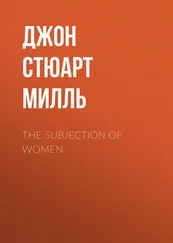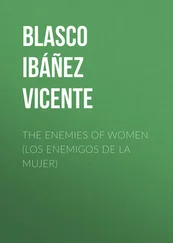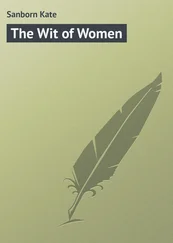“Older sister, I know you feel very bad now.”
“When are you coming back to China together? I’ll go to Beijing to pick you up.”
“Maybe during the Spring Festival. Can we stay with you?”
“Of course you can.”
“Can we use your bedroom?”
“Of course you can.”
“Can we use your big bed? Mike and I have to sleep together.”
“Of course you can.”
“I really want to go home right away.”
Tiao said, “Do you know that Going Home Right Away is Fang Jing’s new movie?”
“He mentioned it when he was in Chicago. The movie was shown here a while ago. But Mike and I didn’t see it; Fang Jing’s generation is too old.”
Tiao hung up without asking to talk to Mike. She sat cross-legged on her bed and cried quietly. She cried not just because she felt sad and misunderstood, nor because she wanted to relieve her sadness or allow herself to feel the gains and losses in her life. She was just crying, letting the tears run off her face and wet her clothes. The crying seemed to prepare her for another state of mind, and she entered into a meditation. She took herself into her heart, and only then realized what a mistake it was to think of her heart as the size of a fist; it was deep and wide — boundless. She led herself far down into her heart, spellbound by the flowers and fragrance that were everywhere. Finally, she reached the garden in the depths of her heart, and only then did she discover what it was like: the verdant green of the grass, the gushing springs, the flowers swaying joyfully on their stems, and the water dancing jubilantly in the streams. White clouds brushed lightly against the rippling water and birds called as they flew over them. Everywhere she went she saw familiar faces, people she knew so well, those who had been dearest to her, men she had loved … They were strolling the garden with smiling, untroubled faces. Those young girls who had passed from her life were also there, Fei, and that heroine of the war against Japan, and Quan. They glided over the tips of grass, wearing crowns of Persian chrysanthemums, bringing with them a light breeze. She moved through, full of wonder at being able to provide them with a garden like this, with such breezes, with such a sense of love. When had she cultivated it? How did it come to be hers? Was it there naturally or had she planted it? It must be natural. There was a garden in every heart’s core that each of us must enter. Everyone must discover it, cultivate, pull the weeds, and water it … and when we wear our crowns of Persian chrysanthemums and look back, we will feel blessed that the heart is the broadest place in the world and that we haven’t let our love nest in weeds.
She kept walking, and her body and mind then sank into a profound stillness.
One day, Tiao received a phone call, a phone call from Yu Dasheng. She said, “Governor Yu, it’s you. Governor Yu, what a surprise to hear from you.”
“Don’t call me Governor Yu. I’m already retired.”
“What can I do for you?”
“Nothing in particular. But if you happened to have time, we could meet and chat. I read a book about the Jewish people recently and want to know what you think of it.”
“Of course. You choose a time. Should we meet in your office?”
“No, I don’t have an office anymore. Let’s meet in a park, the new Rainbow Park by the river.”
“Okay, let’s meet there.”
They sat on a green bench in the Rainbow Park and chatted, and Yu Dasheng brought his granddaughter along. The five-year-old was very polite, and she said, “Hi, Auntie,” as soon as she saw Tiao.
Tiao looked at the girl and responded quickly, but she had a momentary vision of Fei. Didn’t the child look a little like Fei? She really wasn’t sure whether it was her imagination or not.
The little girl ran away and played on her own. Yu Dasheng put on his reading glasses, took out a book from his coat pocket, turned to a page, and said, “Let me read this paragraph to you: ‘If a criminal were to commit arson, burning the temple, the most sacred and revered temple, he would only be sentenced to thirty lashes. Yet, if an angry person were to kill him, the punishment would be death because the temple and all holy ground are less important than a single life, even though it’s the life of an arsonist, a blasphemer, the enemy of God, and the one who insults Him.’ This is what the Jewish people believe, but what about the facts? The facts create irony for the Jews: ‘We were driven from one country to another. Our temples were destroyed, our prophets assassinated, our children murdered, but still we sing the praises of the inviolable sacredness of life and spread that faith to all humankind.’”
Yu Dasheng closed the book and said, “I think this is a good book.”
Tiao said, “Have you ever studied the Jewish people before?”
Yu Dasheng said, “Never. I haven’t even seen Schindler’s List yet.”
Tiao couldn’t help feeling surprised by this government official’s ignorance, but soon excused him. Not all Chinese officials could pay attention to other peoples’ troubles. Besides, she was rather touched by the way he sat on the park bench and pored over the book in his reading glasses: a governor reading passages from a book about the Jewish people … She said, “The paragraph you read is about the value of life.”
“Yes, the value of life, the respect that one race has for life.”
“Have you ever thought about committing suicide?”
“No, not even during the most difficult times.”
“How about the urge to take someone else’s life?”
“No. Why are you asking such a question?”
She said, “Because I had the urge — a long, long time ago. A criminal destroyed the sacred temple in my heart, and maybe all crimes only deserve thirty lashes, but I became that angry person. I am the angry one.”
“I would rather get back to discussing the Jewish people with you.”
“You haven’t thought about killing yourself or taking someone else’s life. Have you ever abandoned a life?”
He seemed to become alert — though maybe it was only Tiao’s imagination again. He said, “No, never.”
They both fell silent. She was about to mention Fei to him, but on second thoughts, what was the point? She had no right to force someone to admit to her assumption about him; she didn’t even have the right to force him to comment on it. Neither Fei nor she had any right based on their own wishful thinking. Maybe he hadn’t asked to see her because of Fei; maybe he just wanted to talk about the Jewish people because he had read a book about them.
The five-year-old girl approached her, and Tiao seemed to be seeing the baby Quan again. She was the two-year-old Quan, the green bud of the spirit. Quan was the first tender shoot in her garden, which she had trampled, and from which, in return, a garden grew. As she stood up from the bench and gazed at the river, which had grown dirty, she caught the scent of a garden in the air. Fuan should be fragrant, she thought. Let me start over again.
The little girl ran back and forth in front of her and kept turning her head to look at her. A voice floated to her from far away: “Child, what’s the matter?”
Child, what’s the matter?
She smiled and gazed at the child, her heart full of bitter sweetness.
TIE NING came to prominence with a national short story award at the age of twenty-five and has won many other literary prizes since. She has published ten books — collections of short fiction, essays, and novels, including The Rosy Gate and A City Without Rain —three of which were made into movies and television series, including The Bathing Women . In 2006, at the age of forty-nine, she was elected president of the Chinese Writers Association, becoming the youngest writer and first woman to be honored in this way. Her works have been translated into Russian, German, French, Japanese, Korean, Spanish, Danish, Norwegian, and Vietnamese. This is her first work to be translated into English.
Конец ознакомительного отрывка
Купить книгу












